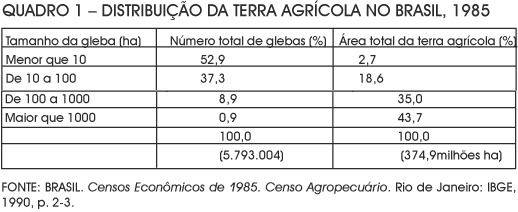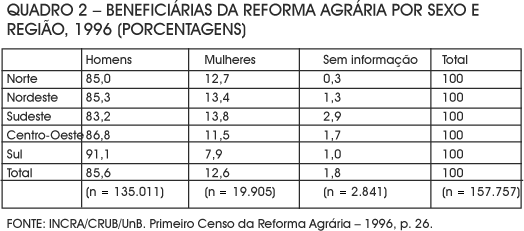This article examines the evolution of the demand for women's land rights in the Brazilian agrarian reform through the prism of the three main rural social movements: the landless movement, the rural unions and the autonomous rural women's movement. Most of the credit for raising the issue of women's land rights rests with women within the rural unions. That women's formal land rights were attained in the constitucional reform of 1988 was largely a by-product of the effort to end discrimination against women in all it dimensions. The achievement of formal equality in land rights, nonetheless, did not lead to increases in the share of female beneficiaries of the reform, which remained low in the mid-1990s. This was largely because securing women's land rights in practice was not a top priority of any of the rural social movements. Moreover, the main social movement determining the pace of the agrarian reform, the land-less movement, considered class and gender issues to be incompatible. By the late 1990s, nonetheless, there was growing awareness that failure to recognize women's land rights was prejudicial to the development and consolidation of the agrarian reform settlements and thus the movement.The growing consensus among all the rural social movements of the importance of securing women's land rights, coupled with effective lobbying, encouraged the State in 2001 to adopt specific mechanisms for the inclusion of women in the agrarian reform.
agrarian reform; social movements; women's land rights; Brazil



